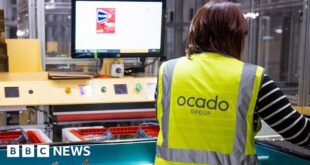Date:
14 March 2022
After only attracting a niche market for quite some time, EVs are now entering the mainstream. Registrations rose 75% last year, up from 108,000 to more than 190,000, while UK new van sales were up by more than a fifth in 2021. Many businesses have already started the transition to EV, while the likes of BP, BT, Direct Line Group, Royal Mail, Scottish Power, Severn Trent and Tesco pledged to convert their fleets to EVs by 2030.
However, there are still some challenges for businesses that need to be navigated. For example, the cost of new EVs can be a barrier to entry, while the government announced at COP26 that all new cars and LCVs sold from 2035 must either be pure EVs or fuel cell EVs, invoking strict time limits. This will be achieved through a tapered system, banning all new internal combustion engine (ICE) vehicles by 2030 and new hybrids by 2035. Last summer, the Government similarly announced its decision to ban the sale of new diesel HGVs from 2040, and 2035 for smaller trucks.
The switch to EV fleets will undoubtedly save companies money in the medium term. Getting to this point however will require businesses to make specific EV policies that are fit for purpose – both for the vehicles and the employees who operate them. Otherwise, EV adoption could cut into the savings that switching to them should bring.
Integrating home charging
To enable staff to adopt EVs quickly companies should – where possible – offer drivers the option to recharge EVs from their home overnight, saving employees and companies time and money. That’s because it will remove the hassle of commuting to their workplace in order to collect their vehicle, while charging at home could offer more cost saving opportunities, particularly charging overnight. Therefore, although there is an initial outlay for installing home chargers, after around 8,000 miles, they will start to pay for themselves. So, if a vehicle is guaranteed to be used regularly, then the investment will be worth it.
At a policy level, however, two questions remain: who pays for the charging point and who pays for the extra electricity? The charging point is a cost that the company will likely remain responsible for as part of their investment in an EV fleet as well as ongoing energy costs, to avoid employees being forced to take accountability their company’s expenses.
There are already existing partnerships and solutions that can provide fleets with interoperable solutions that pay, measure, and manage home charging. These offerings allow businesses to reimburse drivers for the electricity used at home for work journeys, while also providing fleet management data on energy usage and mileage that would otherwise be lost in the new EV charging world.
Focus on staff training to reduce maintenance
With just 5% of mechanics currently qualified to maintain EVs, most vehicles that need major repairs tend to be returned to the manufacturer to complete – even the tyres are in shorter supply than those used for ordinary ICE vehicles. It is likely that these factors will improve with demand for EVs increasing and as we creep closer to the deadlines set by the government.
In order to minimise repair work required, it is crucial that policies are put in place to ensure staff are educated on how to drive EVs in the most efficient way. Providing staff training on how to use their vehicle safely through regenerative braking, reducing maintenance and increasing battery life will be key to achieving this. Combine this with monitoring vehicles over time for any mechanical irregularities to provide the best results.
Working together
Although creating company policies is just one step towards managing a swift transition from traditionally fuelled vehicles to electric, it’s an important one. As other partners and organisations in your field are likely to be making the same move, and some may already have made the transition, it is important to communicate with them as they may be able to offer valuable solutions that you have not considered yet. There are plenty of experts available who can support you with the physical and digital infrastructure updates and make EV charging as efficient and seamless as possible.
Paul Holland is managing director for UK fuel at Fleetcor
Subscribe
Source link



